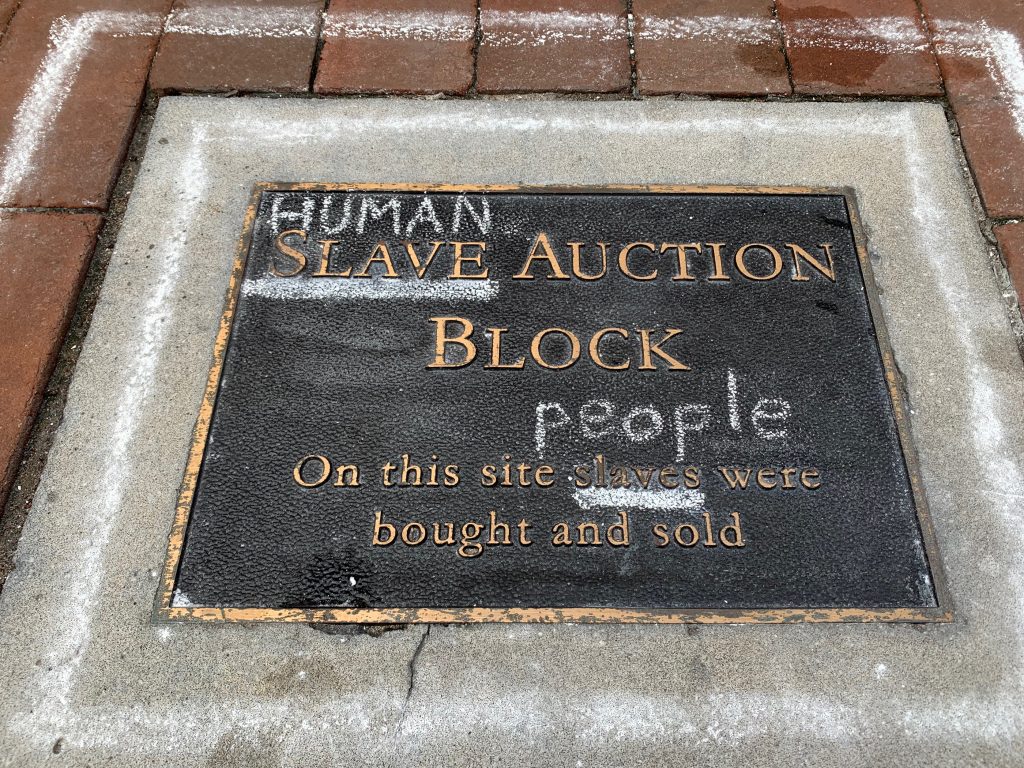
(Courtesy of Richard Parks)
As if we need reminding (ed: we do!), set aside how much we hate women and remember how racist we are! The discussion about American universities – especially our oldest, most venerable institutions of higher learning – and their deep connections to slavery has barely begun to break through, even and especially at our oldest, most venerable institutions. So, while the public remains largely unaware of the history, we might wonder how universities have for so long escaped scrutiny about the past – about how they were built, how they succeeded, who they succeeded for, and how so much of this was connected to buying and selling people to use as free labor. The NYRB dives into a four new books, and sets the stage rather clearly:
One reason, perhaps, that academic institutions were spared from scrutiny was that they seemed, by design, to be physically removed from the vulgar transactions of commercial life. The trading houses where merchants contracted for consignments of cotton, rum, molasses, and human chattel; the insurance firms that indemnified slave owners for loss of human property; the clothiers that manufactured coarse smocks for enslaved field hands—all these were likely to be found among shops and markets, close to the banks from which they obtained credit and the wharves where human goods were loaded or unloaded for sale.
Think, on the other hand, of our early colleges: Harvard on its bluff above the Charles River, or Yale looking across New Haven Green toward the Long Island Sound, or Brown atop the heights of Providence. Their architecture (ecclesiastical) and setting (pastoral) seemed to say, “We stand above the fray, removed from the workaday world, in a high-minded sphere of our own.” For people like me whose shelves are filled with books about these colleges, it’s not a bad idea to paste a note every foot or so along the edge of the shelf bearing this reminder from the novelist James McBride: “The web of slavery is sticky business. And at the end of the day, ain’t nobody clear of it.”
And friends, of course it’s not just the Ivies. The preponderance of screaming denials (CRT!) and counter-recriminations (Woke!) arise out of fear and cowardice about facing this history as it bleeds to profusely into our present. Can’t stop the bleeding without finding the wound, cleaning it carefully, repairing as much damage as possible, dressing it and providing all available care for full recuperation. Only then can we attend and check on the healing.
Image via WAPO
